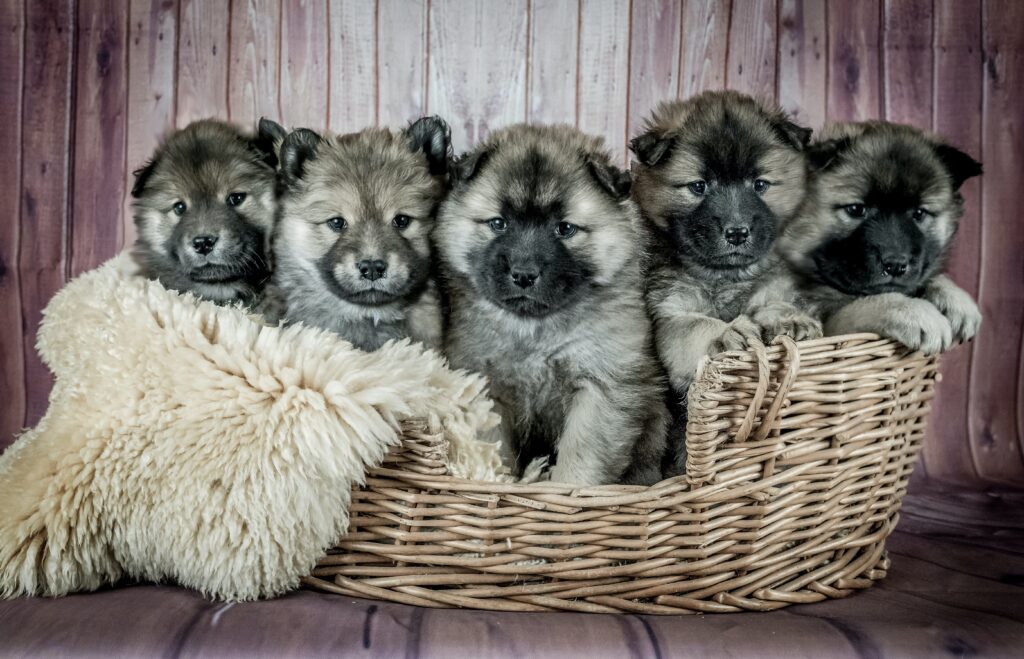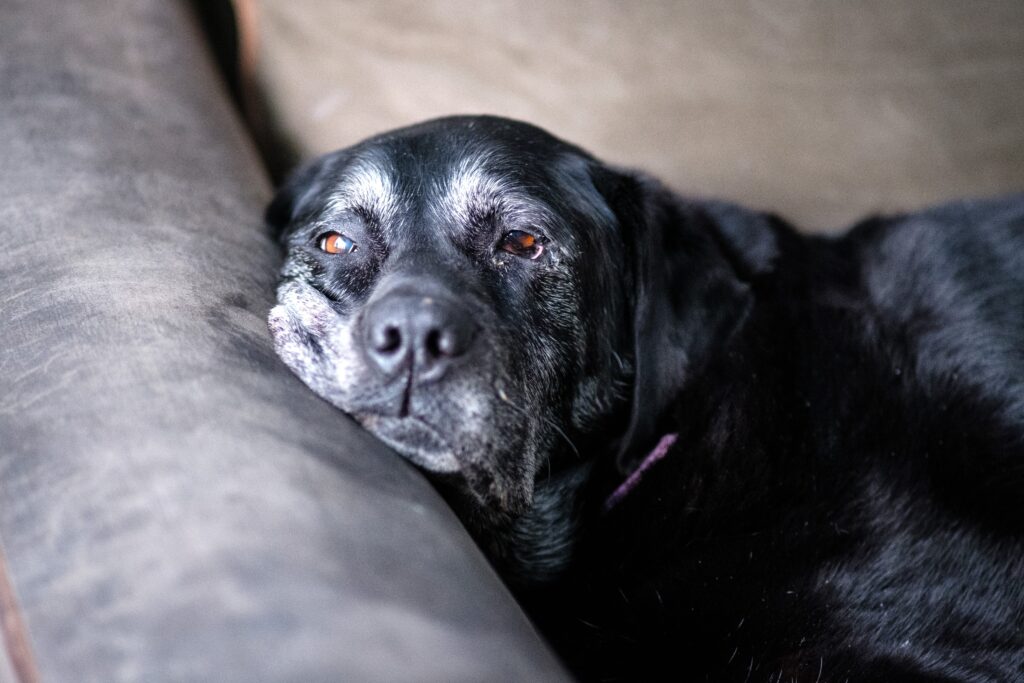Need help with Reactive Dog Behaviour? Join my FREE Facebook support group...
Life Stages of your Dog
…and how to handle them!
From birth to death; your doggo will go through a lot as they develop and grow. I’ve defined 6 key life stages of your dog development. Here’s what they are going through, what to expect, and how to get the best out of them at each stage!
Newborn
0-3 weeks
Focus: Handling, Noises, and Motherly Love
This is the period when your puppy is waking up and discovering the world. They are hearing and seeing for the first time. But, they are mostly interested in staying warm and getting fed. Mum is in charge of making them feel safe and warm, and if she does a good job they’ll benefit from that for the rest of their life.
This is the best time to introduce the pup to daily handling and household noises. This very early experience is so important as it’s so hard to replicate later on. Pups that miss out can still learn to be handled by people they trust. However, they may struggle with strangers, may be very overly sensitive, and may lack confidence.

Puppy
3 – 24 weeks
Focus: Socialisation
This is the main socialisation period. During this time your puppy is learning huge amounts about the world they live in. They will want to taste, chew, and play with everything. They are like a sponge for knowledge. So make the most of this time and teach them as many tricks as you can – and especially tricks that encourage patience and focus, such as sit/stay and watch me. They’ll be learning valuable life skills from mum, and each other, so puppies should spend as long as possible with their mum and siblings. Ideally, they won’t leave until they are 10-12 weeks old, but never younger than 8 weeks of age.
Your focus is to normalise everything around you so they can enjoy the world in a calm way. Socialisation can be successful after this time, but it’s so much easier before 6 months of age. Introduce them to as many new experiences as you can – especially groomers and boarders – if you plan to use them later in life. But also consider going to coffee shops, going on the bus, ignoring ducks and swans, traffic, passing shops with automatic doors, men in hats, walking at night… and so on, you get the idea!
If your pup left the litter too early, they are likely to be quite mouthy and may “argue” with you if you tell them no. They might also be quite intense at playtime, so focus on calming these behaviours too.
Teenager
6-18 months
Focus: Rules and Consistency
This is the age in which dogs “find themselves!” They test boundaries to find out who they are and their place in the world. Expect routines to be broken and rules to be tested during this stage. You can also expect them to be full of joy one minute and grumpy the next. Their behaviour can feel like a lottery at times.
Stay calm and be firm on the rules. The more determined and consistent you are, the quicker this will be over! If they are of a nervous nature, I would also suggest putting off neutering until this phase has passed.
If you can handle the rollercoaster, this is a good time to influence behaviour. They are open to new ideas, however, it might feel like you are getting nowhere at times. Focus on positive leadership during this life stage of your dog.
Teenage behaviour can be challenging so they have a blog all to themselves! If you’re struggling, you can learn more about living with teenage dog behaviour here!
Young Adult
18 – 36 months
Focus: Forming Habits
Phew – you made it to adulthood! Your bonkers teenager will start to settle down into a steady pattern of behaviour now. As an adolescent they learned what kinds of behaviours suited their needs and these are now becoming habits.
Growth is slowing down too so their energy levels are changing, and they can now partake in most dog sports. This will impact their general attitude and behaviour as things start to settle down.
By age 3, new habits will be formed and behaviour is settling. So this period is a great time to change any unwanted behaviours adolescence has left you with.
If you are happy with your dogs choices, just keep rewarding their awesome behaviour and get ready to relax!
Adult
3+ Years
Focus: Last minute behaviour changes
Things are much easier now – hopefully. For better or worse, his behaviour is now predictable and routine. Hormones are settled and future behaviour will likely only be affected by significant experiences. Behaviour can be changed in this life stage of your dog, but expect it to take longer than it has in the past.
If he’s been well socialised and is a confident, well adjusted adult, he’ll most likely take any reasonable changes in his stride. So this is a good time to move house, or introduce a new buddy!

Senior
6-10 years of age (dependant on your breed) –
Focus: Relax and Enjoy
Your dog is settling down for an easy life now. He might become less tolerant of young, energetic pups and will most likely not have the same stamina for play as he used to. His behaviour could be affected by health, so any dog in this stage should see a vet in the event of a sudden behaviour change as a first resort.
Once in this phase his behaviour can still be changed. In fact, it might be easier than it was as an adult, as long as his needs are met. You can teach an old dog new tricks – just expect slow and steady changes.
It’s never too late. Regardless of what life stages of your dog, you can always change their behaviour.
How can I help you with your dogs behaviour?
Private Dog Behaviour Consultations are currently available in the Dundee area and beyond. If you are looking for help solving your dogs behaviour and training problems, then please get in touch!


